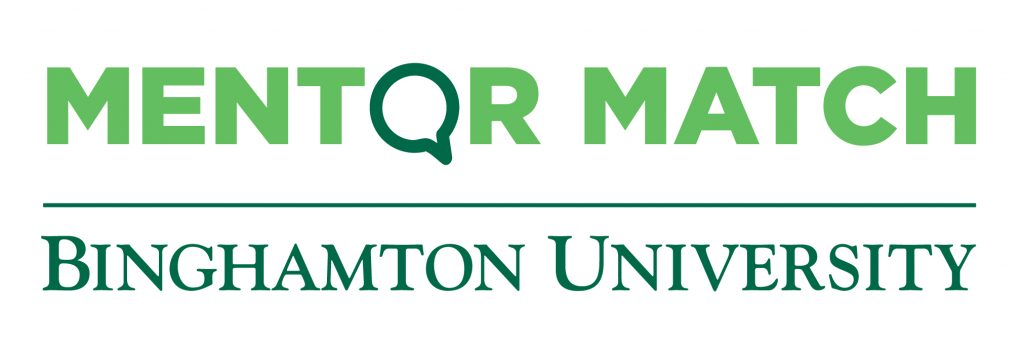Each spring, thousands of graduating students prepare for life after college. Through Binghamton University’s new Mentor Match program, students now have the opportunity to navigate those postgraduate times with the help of BU alumni.
Mentor Match launched in February 2020 and is a program offered by the BU Alumni Association and the Fleishman Center for Career and Professional Development. The program aims to connect students with alumni to foster a personal relationship in which students can learn directly from someone in the workforce, according the Mentor Match website. Steve Seepersaud, advancement communications manager for BU communications and marketing, said he sees unique potential in Mentor Match to benefit both students and alumni.
“Although the Alumni Association, Fleishman Center and campus partners provide a wide variety of events at which students can network with alumni, many students would like to develop sustained and meaningful connections,” Seepersaud wrote in an email. “Through Mentor Match, students can form relationships with alumni mentors who can help to prepare them for a successful future, navigate their careers and, perhaps, explore new career paths. In addition to meeting the students’ need for mentoring, Mentor Match engages alumni as volunteers in a fulfilling way.”
The new program evolved out of BU’s distance mentoring program, which launched in fall 2018. The original program was divided into three separate tracks for the Watson School of Engineering and Applied Sciences, the School of Management and Harpur College through the Harpur Edge office. This meant students could only connect with alumni from their respective schools under the previous structure.
With Mentor Match, users are categorized by “career clusters,” which is the new model used by the Center to show “majors don’t dictate career paths,” according to their website. There are seven career clusters — arts and communication; business and entrepreneurship; education and human services; engineering and information technology; government, policy and law; science and health care and exploring.
Seepersaud said the goal of the new mentoring program is to further the idea of less structured career paths.
“We rebranded and changed the program so it can be more inclusive,” Seepersaud wrote. “A challenge of the program’s previous iteration was that students from different schools were limited to which alumni they could connect with. We know a student’s career choice is not limited to their school or major, and we want them to have an opportunity to explore career paths that might differ from their academic studies and open their eyes to new opportunities.”
For the month of March, Mentor Match is having a “Match Madness” campaign to increase its users — around 1,000 at the beginning of the month. According to Seepersaud, the campaign has been going well so far.
“It has been very successful,” Seepersaud wrote. “And we’ve attracted more than 600 new mentors and about 200 new mentees, and we see [these numbers] continuing to grow.”



